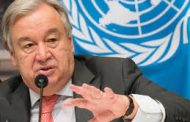The Sudanese government has announced State of Economic Emergency in an attempt to stop the high rocketing dollar exchange rate against the declining Sudanese pound.
It is good that the Minister of Finance, Dr. Hiba Mahmoud Ali stated in the joint press conference which included all the concerned authorities that the security measures are not the only solution and that there are other economic steps.
It is true that the security measures in which the Rapid Support Forces (RSF), Police, the General Intelligence Service (GIS) and the Ministry of Justice are involved will contribute considerably in reducing the speculations in hard currency, but these measures will not stop the deteriorating economy of the country.
It goes without saying that the transitional period after the success of December revolution in overthrowing was stumbling and the two components of the transitional period were not in harmony, especially within the civilian component represented by its political reference (Forces of Freedom and Change).
On the other hand, the military component is adapting the soft landing policy so its performance was dominated by reluctance in taking strong revolutionary procedures.
The civilian component is divided between the soft landing and the revolutionary dismantling of all the pillars of the ousted regime.
The difference among the FFC components resulted to complicating the political arena to the extent of making the Prime Minister unable to take any decisive actions according to the powers vested on him.
To come out of this crisis and to preserve to gains of the revolution there should be an urgent radical reform through reviewing the current Constitutional Document and to expedite the complete the peace process by signing all the peace agreements as soon as possible to pave the way for a new government to work out an emergency plan to recover the stumbling economy.
https://khartoum-today.net/
 Sudan army chief Al Burhan freezes bank accounts of paramilitary RSF
Sudan army chief Al Burhan freezes bank accounts of paramilitary RSF Sudan’s SAF & RSF sign agreement intended to lay groundwork for humanitarian assistance
Sudan’s SAF & RSF sign agreement intended to lay groundwork for humanitarian assistance SAF, RSF agree on extension truce for the sixth time
SAF, RSF agree on extension truce for the sixth time Army, RSF agree to extend truce for 72 hours
Army, RSF agree to extend truce for 72 hours Sudanese people fled to Egypt amid acut humanitarian crisis
Sudanese people fled to Egypt amid acut humanitarian crisis THE ELEPHANT IN THE ROOM
THE ELEPHANT IN THE ROOM Death toll from Sudan fighting tops 180 as clashes in Khartoum enter fourth day
Death toll from Sudan fighting tops 180 as clashes in Khartoum enter fourth day By the UN Secretary-General Op-ed on G20 – 8 billion
By the UN Secretary-General Op-ed on G20 – 8 billion A strong military key to maintaining world peace
A strong military key to maintaining world peace Beautiful China shows new chapter of ecological conservation
Beautiful China shows new chapter of ecological conservation

SECURITY MEASURES ONLY WILL NOT PAY-OFF
About the author
Related Articles
2020 All rights reserved khartoum-today.net 0124293222







